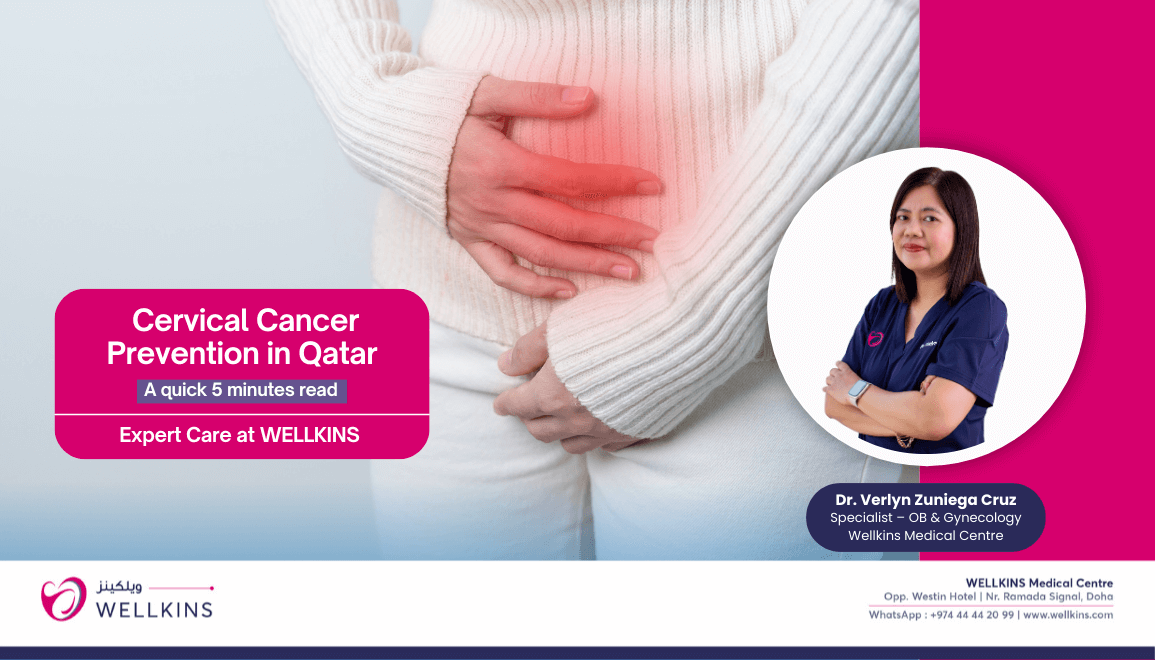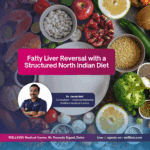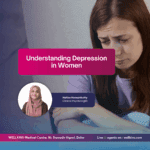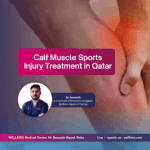Author: Dr. Verlyn Zuniega Cruz (Specialist – OB & Gynecology Wellkins Medical Centre)
Cervical cancer, a disease that silently impacts women’s health globally, is a significant concern, yet it is almost entirely preventable. This year, millions of lives will be affected by this cancer, but with advancements in medical science, particularly the Human Papillomavirus (HPV) vaccine, we have an unprecedented opportunity to eliminate it. At Wellkins Medical Centre, we are dedicated to supporting our community with vital health knowledge. Here we discuss about what cervical cancer is, its connection to HPV, and most importantly, how vaccination offers a powerful shield, paving the way for a healthier future.
“Effective prevention of cervical cancer relies on two key actions: HPV vaccination and regular screening. Navigating these interventions in Qatar requires proper medical guidance for optimal protection. Since exposure to the Human Papillomavirus (HPV) is strongly linked to cervical changes, a well-structured prevention plan is essential for the long-term journey of protecting your health, not just a single shot or test.”
Understanding Cervical Cancer: A Preventable Disease
Cervical cancer is a type of cancer that develops in a woman’s cervix, which is the lower part of the uterus that connects to the vagina. Unlike some other cancers, cervical cancer has a known primary cause: persistent infection with high-risk types of Human Papillomavirus (HPV).
Slow Progression: Cervical cancer typically develops very slowly over many years. Before cancer appears, the cells of the cervix undergo abnormal changes, known as pre cancerous lesions or dysplasia. Regular screening tests (Pap smears) can detect these changes early, allowing for timely intervention before cancer develops.
Symptoms Often Appear Late: In its early stages, cervical cancer usually does not cause any noticeable symptoms. This “silent” nature is why regular screening is so critical. As the cancer progresses, symptoms may include abnormal vaginal bleeding (between periods, after intercourse, or after menopause), unusual vaginal discharge, or pelvic pain.
Global Impact: Despite being preventable, cervical cancer remains a significant health burden, particularly in low and middle-income countries where access to screening and vaccination is limited. It is the fourth most common cancer among women worldwide.
The Link to Human Papillomavirus (HPV)
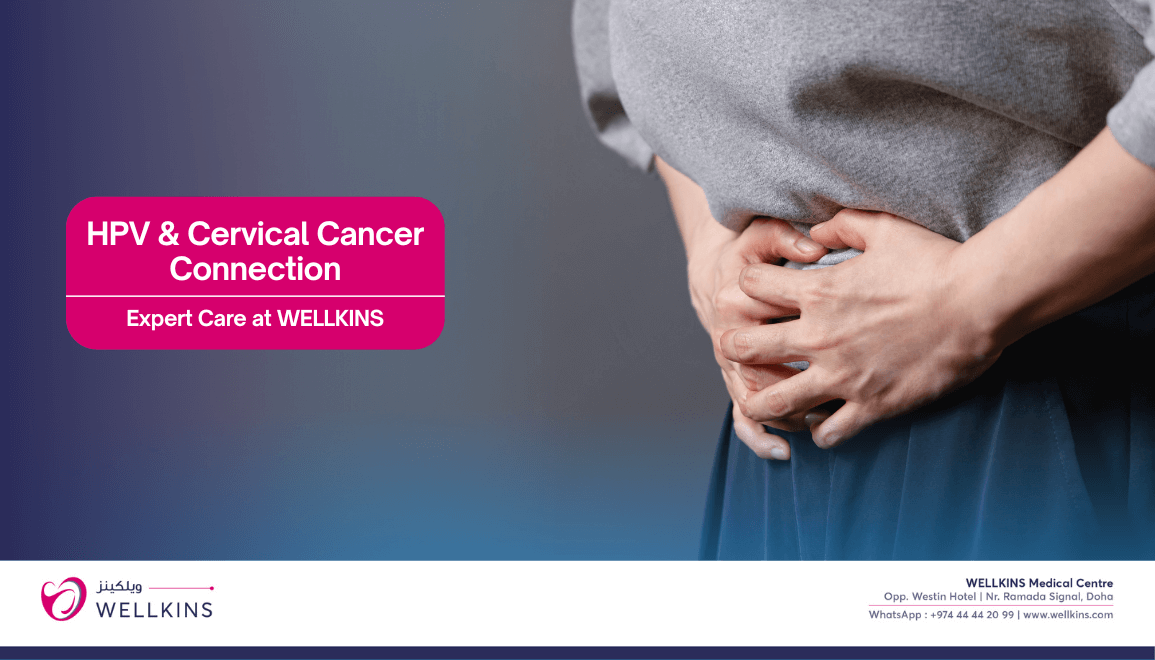
The connection between HPV and cervical cancer is profound and well established. HPV is a very common virus, with most sexually active people acquiring it at some point in their lives.
What is HPV? HPV is a group of more than 200 related viruses. Some types cause common skin warts, while others can cause genital warts. A subset of “high-risk” HPV types (most notably HPV-16 and HPV-18) are responsible for almost all cases of cervical cancer, as well as many cases of other anogenital cancers (anal, vaginal, vulvar, penile) and oropharyngeal (throat) cancers.
How it Spreads: HPV is primarily transmitted through skin-to-skin contact, most often during sexual activity, including vaginal, anal, or oral sex. It can spread even when an infected person has no visible signs or symptoms.
Persistent Infection: In most cases, the body’s immune system clears the HPV infection naturally within two years. However, if a high-risk HPV infection persists, it can lead to chronic inflammation and cellular changes in the cervix, eventually progressing to cancer.
The Power of Prevention: HPV Vaccination
The development of the HPV vaccine represents one of the most significant breakthroughs in cancer prevention. It offers a safe and highly effective way to protect against the HPV types that cause most cervical cancers and other HPV-related diseases.
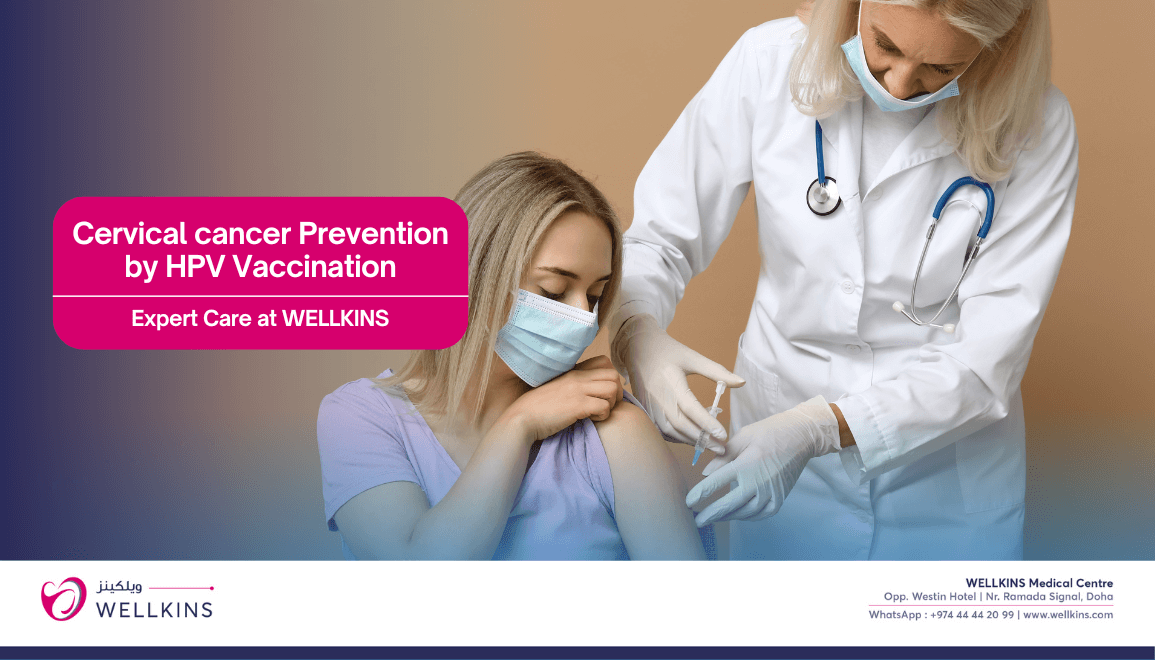
How the Vaccine Works: The HPV vaccine is a preventive vaccine, meaning it works by stimulating the body’s immune system to produce antibodies against specific types of HPV before exposure to the virus. If the vaccinated individual is later exposed to these HPV types, their immune system can recognize and fight off the infection, preventing persistent infection and the cellular changes that lead to cancer.
Recommended Age: The HPV vaccine is most effective when given before an individual becomes sexually active and potentially exposed to HPV. It is routinely recommended for adolescents aged 9-14 years, typically given in a two-dose schedule. For individuals aged 15-26 who haven’t been vaccinated or haven’t completed the series, a three-dose schedule is recommended. Some countries also recommend vaccination for adults up to age 45.
High Efficacy and Safety: Extensive research and real-world data have consistently shown the HPV vaccine to be incredibly safe and highly effective in preventing HPV infections and the pre-cancerous lesions that lead to cervical cancer. It has drastically reduced the rates of HPV infection in vaccinated populations.
Beyond Cervical Cancer: Current HPV vaccines protect against the HPV types that cause not only cervical cancer but also most cases of anal, vaginal, vulvar, and certain head and neck cancers, as well as genital warts.
A Complete Approach to Cervical Cancer Prevention
While the HPV vaccine is a cornerstone of prevention, it is part of a broader strategy for safeguarding women’s health.
Routine Cervical Cancer Screening (Pap Smears): Even with vaccination, regular cervical cancer screenings, such as Pap tests and HPV tests, remain vital. These tests can detect abnormal cervical cells or the presence of high-risk HPV types, allowing for early detection and treatment before cancer develops. Screening guidelines vary by age and individual risk factors.
Safe Sexual Practices: Using condoms consistently and correctly can reduce the risk of HPV transmission, though it does not offer complete protection as HPV can infect areas not covered by a condom. Limiting the number of sexual partners can also reduce risk.
Healthy Lifestyle: Maintaining a healthy immune system through a balanced diet, regular exercise, and avoiding smoking can help the body clear HPV infections more effectively. Smoking, in particular, has been identified as a co-factor that increases the risk of cervical cancer in women with persistent HPV infection.
Your Partner in Prevention of Cervical Cancer
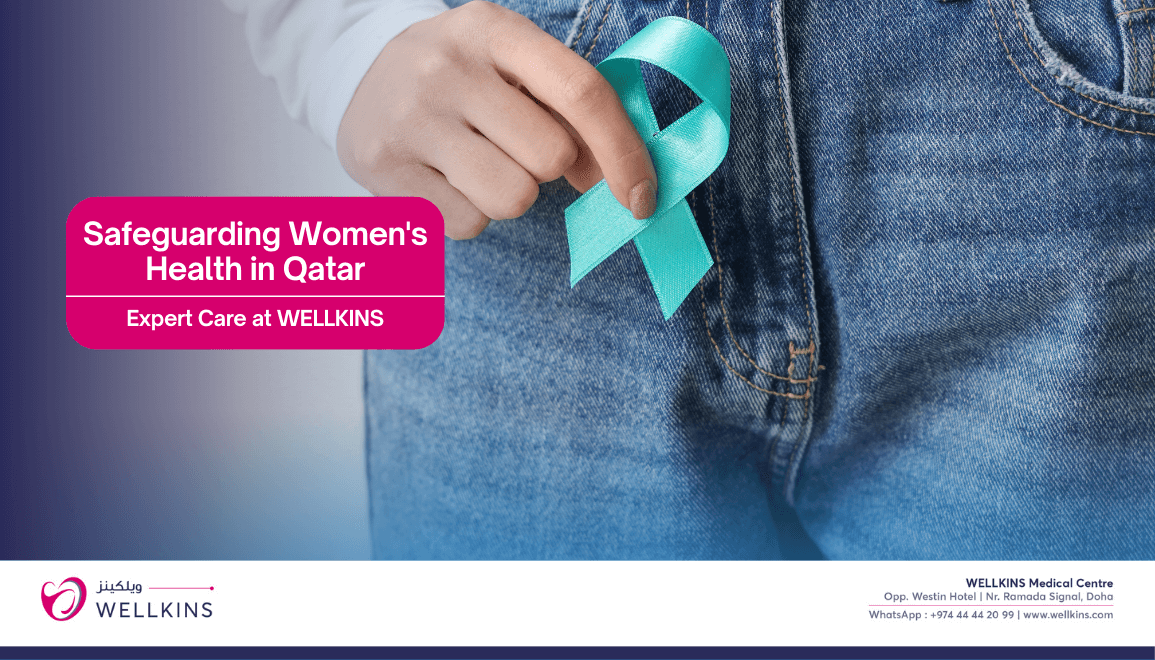
Cervical cancer is a preventable disease, and no woman should have to face its challenges. The HPV vaccine stands as a testament to scientific progress, offering a powerful tool to protect not just individual women, but entire generations from this devastating disease
At Wellkins Medical Centre, we are staunchly dedicated to equipping our patients with the most up-to-date information and access to life-saving preventive measures. Our approach is to deliver thorough education on cervical cancer, the benefits of HPV vaccination, and guidance on appropriate screening schedules. We encourage parents and young adults to discuss HPV vaccination with our healthcare providers. Together, we can take proactive steps to prevent cervical cancer and support a future where this disease is a relic of the past. Protect yourself, protect your loved ones choose prevention.
To book an appointment at Wellkins Medical Centre: https://wellkins.com/visit


